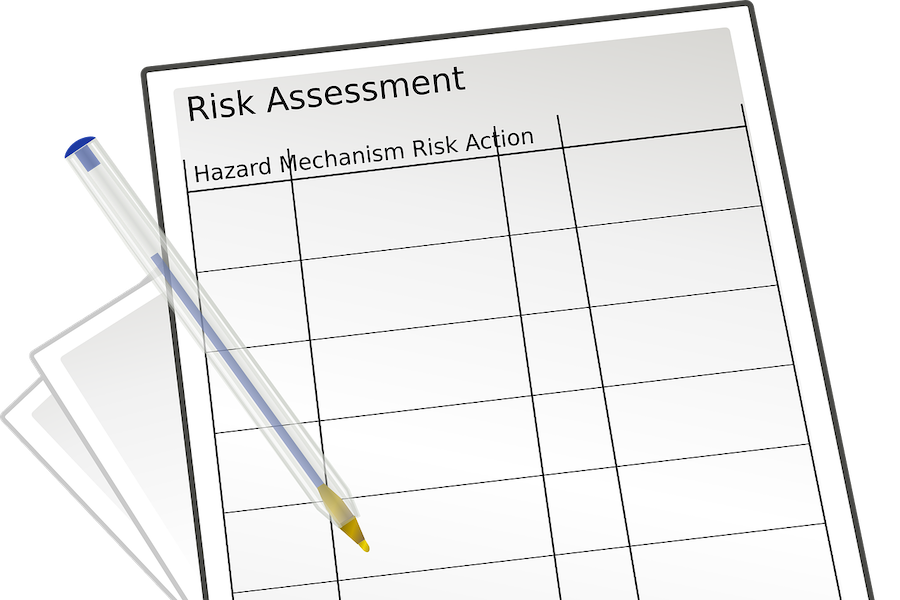 As we all look nervously, optimistically and excitedly towards 1 October, Risk Assessments will take on a new importance as a non-negotiable process required to operate live events, safely, legally and – most importantly – to ensure that the guest experience is as seamless and enjoyable as ever.
As we all look nervously, optimistically and excitedly towards 1 October, Risk Assessments will take on a new importance as a non-negotiable process required to operate live events, safely, legally and – most importantly – to ensure that the guest experience is as seamless and enjoyable as ever.
After our Talks session last week, Sarah Threlfall, Events & Safety Consultant from Brightspace Events has summed up the key considerations for every event that is organised by a business, organisation or charity in the future.
What is a risk assessment and why do we do them?
Your usual legal requirements from the Management of Health & Safety at Work regulations remain – and now there is additional stipulations from the COVID Secure government guidelines. Principally, a Risk Assessment allows you to keep your staff, visitors and members of the public safe.
What happens if I don’t do one or it’s not good enough?
Under the new Coronavirus Legislation, Local Authorities now have increased powers for enforcement around COVID-19 risk assessments and events. Many authorities as well as the HSE are operating spot inspections at premises and events – plus ‘tip offs’ from the public will often trigger an investigation.
This could result in your event being immediately shut down.
What are the other benefits of doing a COVID Secure Risk Assessment?
- Make sure you are operating legally and safely
- Build confidence with clients who will be asking to see them earlier and in more detail than before
- Attract audience by reassuring delegates that everything is safe
- The process provides a structure and confidence to a brand-new way of working for Event Planners. No one has experience to rely on when it comes to COVID secure events so a regimented document will ensure everything is covered.
Key Points for a positive COVID Secure Risk Assessment process
- Start at the beginning of the event design process – aim to have the measures identified well in advance so they can be woven into the event rather than stamped on top of an already laid out event.
- Include Risk Assessment as an item on the agenda of any and all planning meetings to ensure it gets buy in from all stakeholders
- Stress the importance of leading by example to event staff and clients – if PPE / masks are required then EVERYONE needs to wear it, no exceptions (unless medical).
- Consultation with all involved including suppliers and ‘on the ground’ staff to ensure all measures are practical and sufficient.
- Prioritise – focus on the higher risk areas and not every trivial point
What to include:
A COVID Secure Risk Assessment focuses on the Risk of Transmission of COVID-19 and nothing else.
- What do we know about the hazard; about COVID-19 and who is at risk
- What’s the current risk regionally and nationally
- Set out which areas you can control and therefore are included in the assessment
- What is definitely NOT included eg. areas that you cannot control
**You don’t need a Hazard / Severity matrix as with a normal assessment**
- Break down every ‘action’ at the event and assess specific risks for transmission eg. arrival, registration, cloakroom, using toilets etc.
- Include reference to the TYPE of transmission at each point – Direct, Indirect or Airborne
- The control measures that are REASONABLY PRACTICABLE to minimise risk
Additional Requirements for COVID Safe Events
- Procedure for dealing with guest who shows symptoms
- On site considerations
- Nominated COVID officer
- Additional safety / monitoring staff
- Sign in / sign out procedures to aid track and trace including all delivery drivers / suppliers
- Supplier Risk assessments and policies should all reflect COVID Secure measures eg. have hotels amended fire policies to aid social distancing?
- Impact assessment of self-isolation / quarantine. As track and trace would require people to immediately self-isolate, you need to minimise the impact on your team by eg. keeping your event team apart so that they don’t all have to isolate.
- Communication – how will you ensure crew, delegates, clients and staff are aware of all measures and comply?
Don’t forget the other risks
A COVID assessment is as well as a normal and full risk assessment for build, live and breakdown. In fact, COVID measures could introduce additional risks – specifically queues that extend into public areas / car parks that could be targets for terrorism.
A Final Word on Staff
Arguably, Event Staff are the ones most at risk in running an event and are also the ones most likely to start proceedings against a business if they felt that not enough was done to keep them safe.
Your Risk Assessment should pay particular attention to the way the staff work including the office, briefings, the build and crew catering. Consult with the team on deciding what measures are required so that you can improve compliance when on site and make sure you include monitoring and enforcement so that what’s on paper translates into the event itself.
COVID Secure events aren’t hard but they will require VERY careful planning and meticulous documentation and implementation. With everyone following the guidance, we can be confident that we will #getbritainmeeting again very soon

